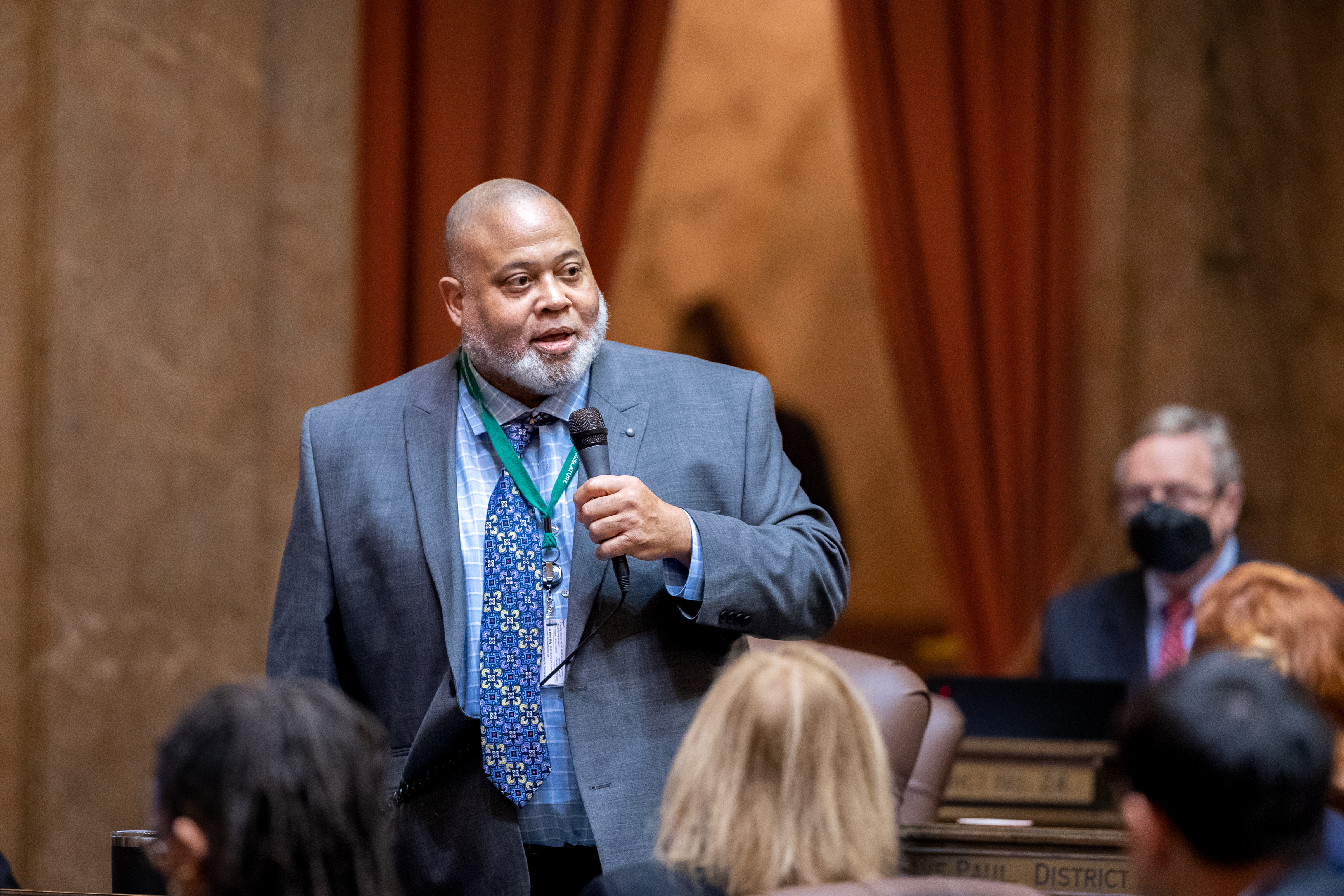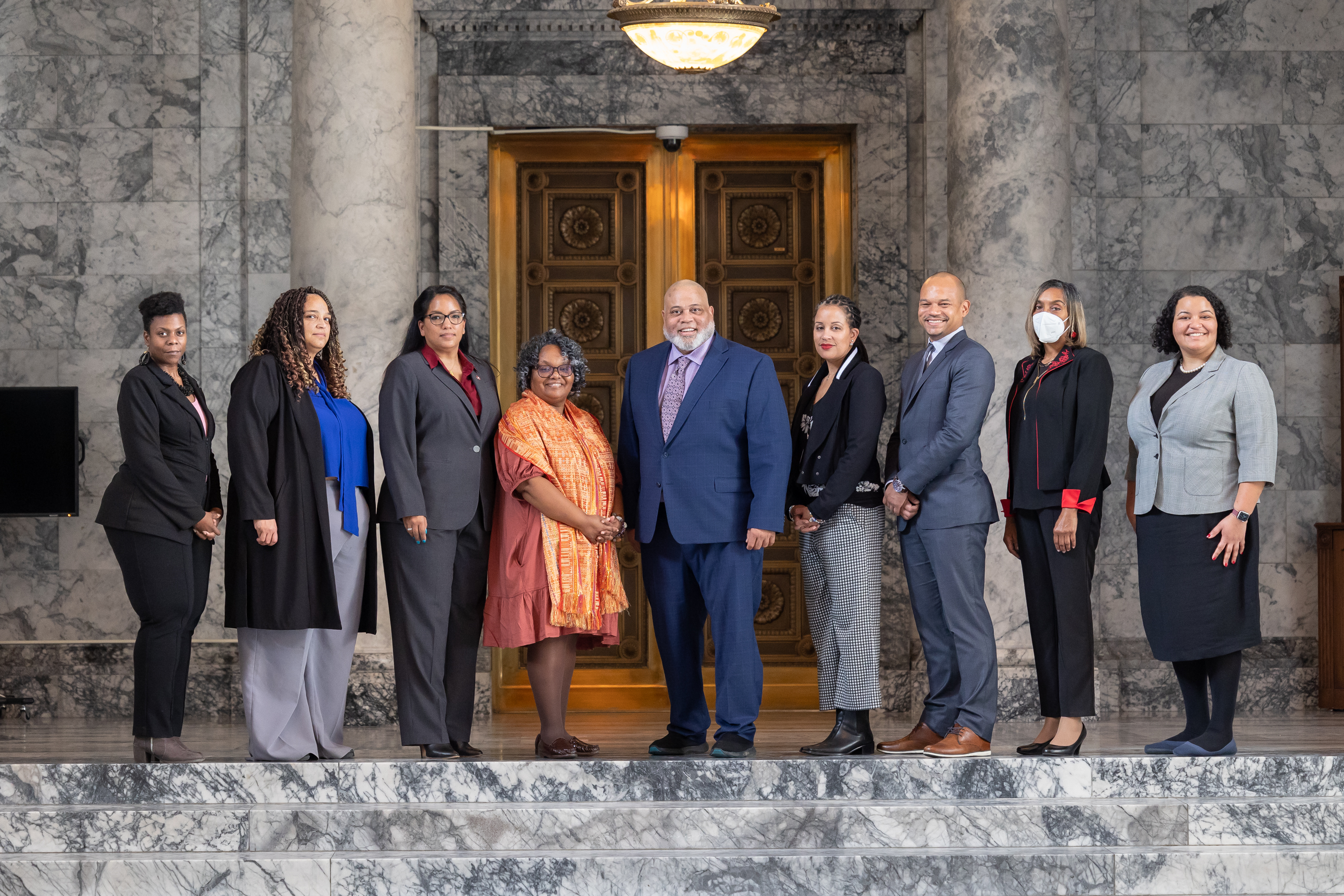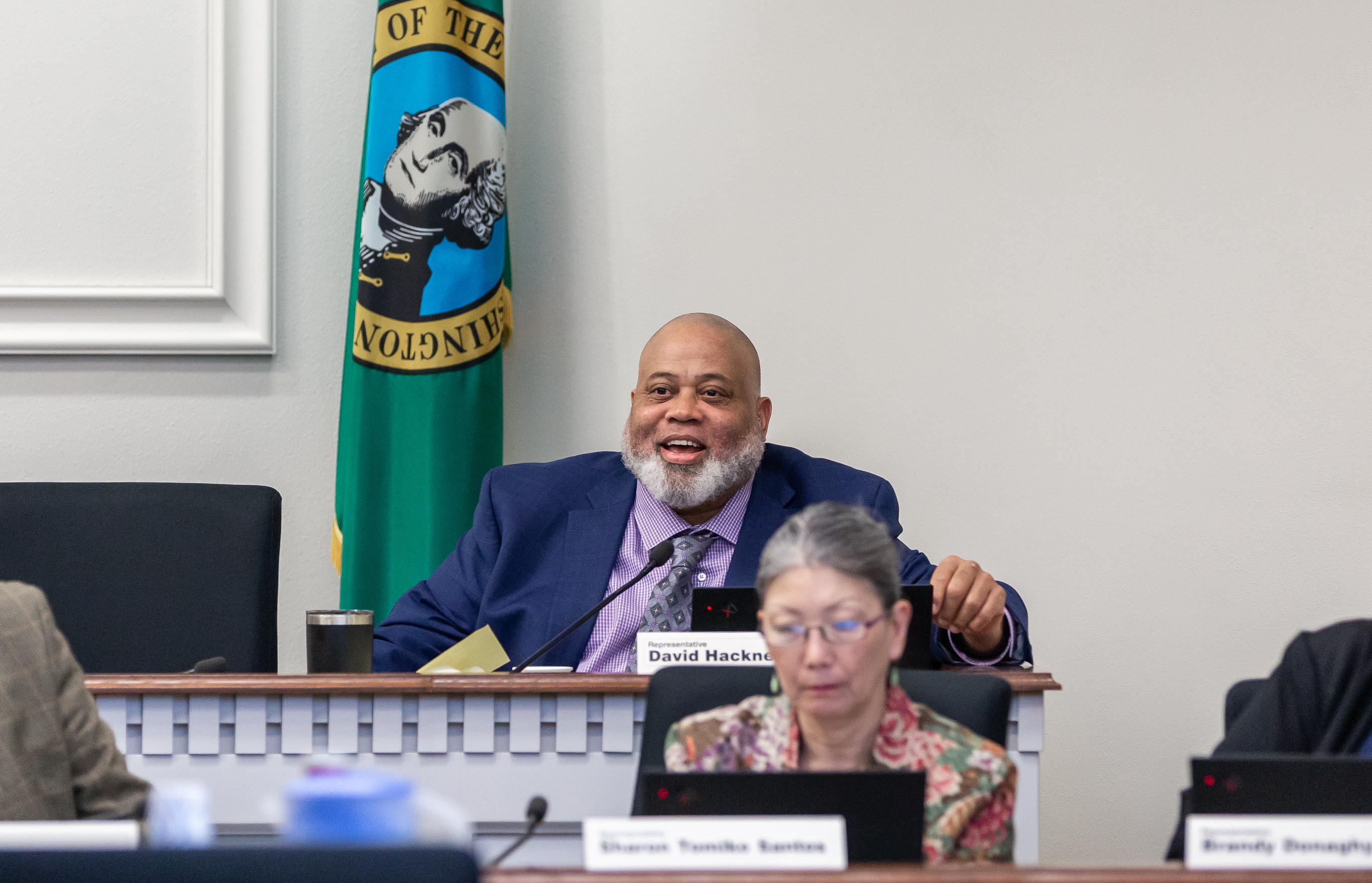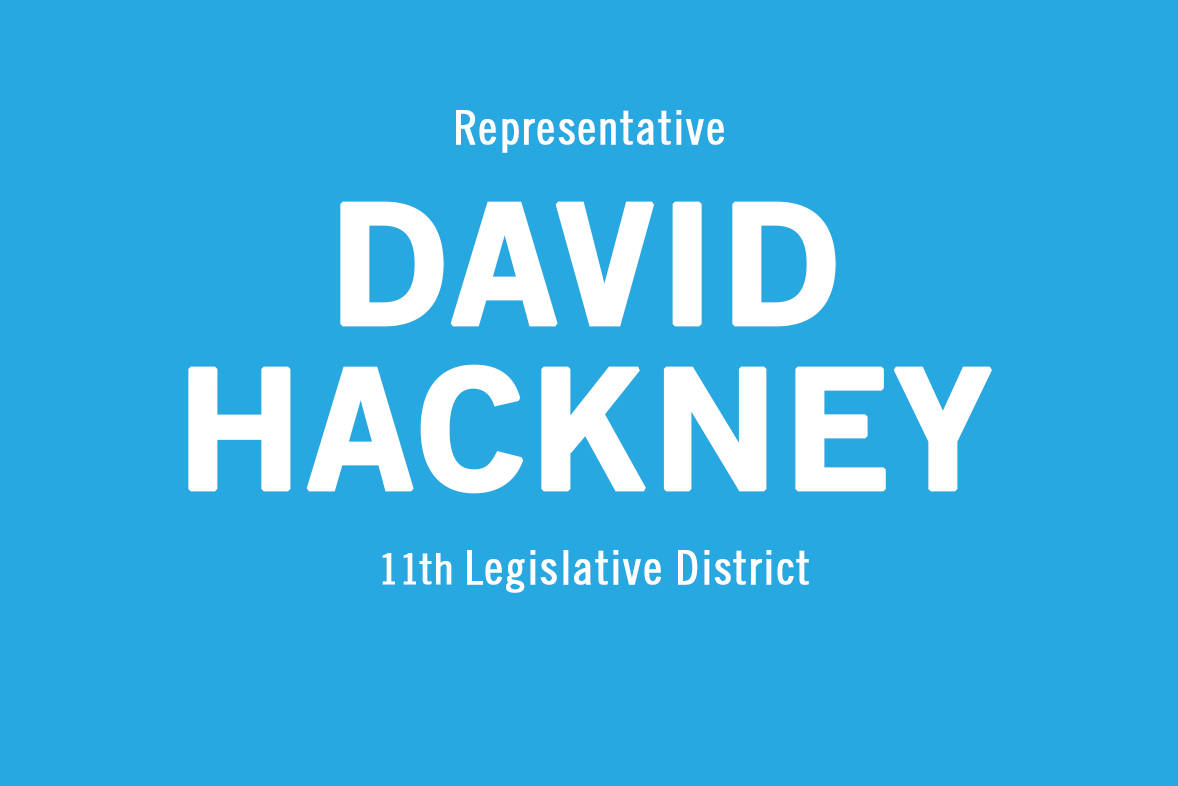Dear Friends and Neighbors,
The legislative session ended last month, and in only 60 days, your state legislature passed over 300 bills, including the state operating budget, construction budget, and a new transportation package that will transform our state. In my last newsletter, I reviewed these state budgets and the transportation package, so in today’s email I’ll touch on other legislative successes.
This session, I looked for ways to address our homelessness and affordable housing crisis, support a clean energy future, and best protect our communities. I’m pleased to report that we made meaningful progress in each of these areas.
Please note that as a post-session update, this email will be a little longer than my regular updates, but I hope you will find it useful. As always if you have any questions, comments, or feedback please reach out to my office.
Thank you for taking the time to read this update.
In service,

Promoting Housing Security and Reducing Homelessness
Washington was in a housing and homelessness crisis before the pandemic, and the economic downturn made it worse. Everyone should have a roof over their head and a safe place to sleep at night. That’s the bare minimum. Yet in every corner of the state, individuals and families are struggling with housing insecurity every day, whether it’s someone sleeping under an overpass, or a family worried they won’t be able to pay the rent next month.
Record investments in 2021 helped stave off a wave of evictions and kept people housed, and this session we built on that work with more critical investments. We also passed key policies to help keep people housed and prevent them from becoming homeless in the first place. Read more about these big wins below.
Read the previous update for information on budget investments in housing and homelessness services. [LINK]

Real Estate Excise Tax exemption for affordable housing (HB 1643): I introduced this policy to provide non-profit developers and public housing authorities with a new tool to preserve existing housing and/or acquire land for new development. This new law does so by exempting such transfers from the real estate excise tax (REET), creating an incentive for property owners to sell to non-profit and public entities and helping them compete in negotiations against private purchasers.
Apple Health and Homes (HB 1866): Establishes a program providing housing and community support services to people who meet certain income and medical risk eligibility criteria. Over 70 percent of people who are chronically homeless struggle with a physical or behavioral health condition, which are very often barriers to finding stable housing. This program treats chronic homelessness as a key component of medical care, so more people can find a home and a way forward.
Reducing youth homelessness (HB 1905): Provides more services and resources to ensure young people have safe, stable housing when leaving a publicly funded system of care. No young person should be released into homelessness after they’ve been in foster care or behavioral health treatment, for example.
Connecting people to housing before they enter homelessness (HB 1860): Requires that patients receive housing-related care coordination services before being discharged from inpatient behavioral health settings. Homelessness and behavioral health (mental health and substance use) are deeply intertwined and unfortunately, many people are discharged from care and have nowhere to go.
Rent payments by check or money order (SB 5749): Requires landlords to accept personal checks, cashier’s checks, or money orders for rent payments. This is a major equity issue for seniors, people with low incomes, people with visual impairments, people with limited English proficiency, and those who lack reliable internet access and online banking. Under the bill, landlords can refuse accepting a check from a renter who previously had a rent check bounce, and landlords don’t have to accept a rent check by mail if they provide a secure, on-site drop box for payments.
Property tax exemption for equity cooperative housing (SB 5713): Provides a property tax exemption for limited equity cooperative housing, a low-income home ownership model. This reduces a cost barrier to home ownership for working families, and is another tool to address the need for more affordable housing in our region.
There is more work to be done to close the housing shortage gap and make sure every Washingtonian has a place to call home. As long as there are neighbors in need, out in the bitter cold or sweltering heat without a roof over their heads, I won’t be satisfied. Our state can be a place where there aren’t people in crisis in the streets, and where people can have peace of mind knowing treatment and care is available for those who need it.
That’s the Washington I want for all of us. The work to get us there continues, and I’m committed to continuing to build on the major steps taken by the Legislature over the past two years.
Preserving Our Environment for Future Generations
The 2021 Legislative Session was a landmark year in the fight against climate change with the passage of the Climate Commitment Act and low-carbon fuel standards. During the short 2022 session, we continued that great work by passing legislation targeting greenhouse gas pollution from landfills & our state’s building sector. With a climate crisis on our doorstep, we’re committed to doing all we can to protect the lives and livelihoods of all Washington families for generations to come.

Improving appliance efficiency standards (HB 1619)
Washington has taken great strides toward a greener, cleaner, more sustainable energy grid in recent years, but we can do more to ensure the energy we produce is being used as efficiently as possible. House Bill 1619 expands energy efficiency standards to a greater range of household appliances to reduce greenhouse gas pollution, water use, and costs for Washington families. Not only does this bill minimize our negative impact on the environment, it will lead to long-term savings for residents throughout the state.
Reducing methane emissions from landfills (HB 1663)
Methane can be nearly a hundred times worse than carbon dioxide when it comes to trapping heat and changing our climate — and much of it comes from our state’s landfills. House Bill 1663 requires large municipal landfills to install and operate gas collection and control systems to capture this methane and prevent it from getting into the atmosphere. Our kids deserve a livable future, and we must do what we can to reign in a planet that just keeps getting hotter and hotter.
Reducing barriers to EV-charging in common interest communities (HB 1793)
I was proud to champion and pass a new law that allows for electric vehicle charging stations in HOAs and condominiums. Our state already has over 86,000 electric vehicles on the road – a number which will only rise as we continue to incentivize EVs and build our electric infrastructure. With this expansion, it’s imperative to ensure affordable and convenient access to electricity as a transportation fuel, including at home. House Bill 1793 helps achieve that by removing barriers for the one-third of Washingtonians who live in common interest communities.

Reducing methane emissions from organic waste (HB 1799)
For too long, surplus food and organic waste has been left to rot in our landfills, releasing methane into our atmosphere and accelerating our climate crisis. House Bill 1799 helps redirect our surplus food to the families who desperately need it, while repurposing organic waste for composting at local farms. We have the opportunity today to chart a new course for our state that helps eliminate hunger and protects communities from the effects of climate change — this is a common-sense win-win.
Reducing pollution from existing buildings (SB 5722/HB 1774)
Washington has set meaningful statutory goals to reduce greenhouse gas pollution, but the state cannot meet those targets without limiting emissions from the building sector. Senate Bill 5722, the companion to a bill I introduced (HB 1774), provides our communities the opportunity to improve the energy efficiency and performance of older existing structures, lower the utility costs for low-income residents, and give building owners enough time to make low- or no-cost adjustments. We’ve made a commitment to our communities and families to do everything we can to preserve our way of life now and for the generations of future Washingtonians still to come; this is one way we can make good on that promise.
Ensuring equal justice, protecting public safety
Last year the Legislature passed a comprehensive package of police reform legislation designed to set clear expectations for officers’ behavior, set a baseline for acceptable use of force, tactics, and equipment, and ensure accountability and transparency. This included creating a statewide use of force policy for law enforcement. That legislation has been effective, reducing police killings by 60% last year. This year, Democrats worked hard to ensure that this package of bills is implemented well. After meeting with a wide range of stakeholders, we brought forward clarifying legislation to strike the right balance to keep communities safe without jeopardizing the important progress made last year.
We also passed legislation to curtail gun violence, protect survivors of domestic abuse and harassment, crackdown on catalytic converter theft, and find solutions to the crisis of Missing and Murdered Indigenous Persons.

Here’s more info about the steps taken to improve public safety:
- Clarifying law enforcement equipment regulations (HB 1719): We are eliminating any ambiguity in the statute ensuring officers have all the tools necessary to do their job. HB 1719 reaffirms that law enforcement can use less-lethal alternatives such as bean bag rounds and less lethal munitions launchers.
- Law enforcement use of force (HB 1735 and HB 2037): These new laws, respectively, ensure that officers can use reasonable force in behavioral health, child welfare, and other related crisis situations, and that reasonable force can be used to stop someone from fleeing a temporary investigative detention.
- Keeping weapons out of certain public meetings and spaces (HB 1630): Guns do not belong at school board meetings, ballot counting locations, or local council meetings. All Washingtonians deserve safe participation in civic engagement without intimidation and fear.
- Strengthening the ban on ghost guns (HB 1705): This new law strengthens Washington’s ban on these untraceable guns and requires that unfinished frames and receivers, which can easily be converted into working firearms, be registered and serialized.
- Banning high-capacity magazines (HB 5078): Mass shootings involving high-capacity magazines resulted in twice as many fatalities and 14 times as many injuries as those that did not. Limiting magazines to 10 rounds will save lives.

- Reigning in catalytic converter theft (HB 1815): By targeting the places where stolen catalytic converters are sold and providing law enforcement with new resources, HB 1815 will help stem the wave of catalytic converter thefts.
- Addressing the crisis of missing and murdered Indigenous persons (HB 1725 and HB 1571): HB 1725 creates a new statewide alert for missing Indigenous people like the ‘Silver Alert’ established for missing vulnerable adults, and HB 1571 gives tribes the right to pray over the body of a deceased person before they are moved or if their resting place is disturbed.
- Improving civil protection orders (HB 1901): Domestic abuse can be emotional and psychological, not just physical abuse. This new law adds “coercive control” to the definition of domestic violence.
I’m also glad to report the success of my bill to protect the sensitive information of current and formerly incarcerated individuals (HB 1956). The Department of Corrections collects extremely sensitive information about the currently and formerly incarcerated, including Trans individuals. Failure to protect this kind of information can not only follow a person after release, but also result in inmates failing to provide critical information needed to investigate allegations of sexual abuse, make housing and classification decisions, and maintain safety. This policy does not prevent data from being released in the aggregate. It only prohibits extremely sensitive information about an individual from being released without their consent.



